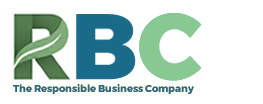
27 Jan Ethics at work survey
Here’s my summary of the IBE’s latest survey on ethics, which centres on attitudes to, and perceptions of, ethics in the workplace in Europe.
The numbers
- 81% of employees in the UK believe that honesty is practised daily in their organisation, with a small percentage (8%) feeling pressured to compromise their values.
- While the awareness and use of whistle-blowing systems is growing, only 39% of employees in the UK are satisfied with how their concern was dealt with.
- Younger employees (16-34) expect more from the organisation they work for than older people (55+).
The content
- One of the biggest reasons for lapses in ethics is the gap between standards set by the Board and the daily reality of staff needing to meet organisational targets.
- While the UK has ‘moved on’ from the financial crisis, more sectors have since become embroiled in scandals, leading to a higher engagement from the general public in business ethics. The most provocative issues are tax and executive pay.
- Across continental Europe, employees are less positive about ethics at work now than they were in 2012: honesty is said to be practised less frequently and employees are more aware of misconduct.
- The report outlines how to embed ethical values, citing a code of ethics as the most important element, along with a speak-up (whistle-blowing) line; helpline; and ethics training.
- Where ethical frameworks are in place, employees are more likely to say that honesty is practised always/frequently.
The verdict
- The report takes a long time to get going, front-loading messages from sponsors and information about the scope/ methodology. It’s a determined reader who keeps scrolling!
- In design, and content, it’s easy enough to read, but pretty dry.
- I’d like to have seen deeper exploration of the issues: what do the results mean on a practical level; how can you seismically shift behaviours; what’s the value of ethical behaviour etc.?
- Some high-level analysis of the psychology governing ethical behaviour at work would also have made interesting reading.
Last word
This report doesn’t set out to innovate, but it’s a useful gauge to track attitudes to business ethics over time and interrogate national trends. Keeping a spotlight on ethics matters and while this report probably won’t radicalise your approach, it might prove useful for conjuring up some stats for that Board presentation you’ve been putting off.

No Comments